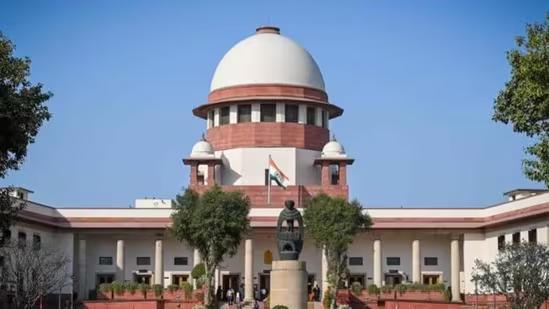
Court can’t grant assent to bills, only Guv & Prez can: Maha to SC
In a recent hearing at the Supreme Court, the Maharashtra government made a crucial argument regarding the powers of the Governor and President in the legislative process. Senior Advocate Harish Salve, representing the state, maintained that courts cannot accord assent to bills, and only the Governor and President have the authority to do so. This statement was made during the hearing of a presidential reference on whether the court could impose timelines for the Governor and President to deal with bills passed by state Assemblies.
The presidential reference was initiated by the Centre, seeking the Supreme Court’s guidance on the matter. The Centre argued that the Governor and President have a constitutional duty to act on bills passed by the state Assemblies within a reasonable timeframe, failing which the court should impose a timeline to ensure that the legislative process is not stalled. However, the Maharashtra government took a diametrically opposite stance, emphasizing that the Governor and President are the sole arbiters in the matter of granting assent to bills.
Salve, representing the Maharashtra government, contended that the courts have no role to play in the process of granting assent to bills. He argued that the Constitution confers this power exclusively on the Governor and President, and it is not for the courts to interfere in the exercise of this power. The senior advocate pointed out that the courts’ role is limited to interpreting the Constitution and ensuring that the legislative process is conducted in accordance with the constitutional norms.
The Maharashtra government’s argument is based on the principle of separation of powers, which is a fundamental tenet of the Indian Constitution. According to this principle, the legislative, executive, and judicial branches of government are designed to function independently of each other, with each branch having its own distinct powers and responsibilities. Salve emphasized that the courts cannot usurp the powers of the other branches of government, and therefore, cannot accord assent to bills.
Furthermore, the senior advocate pointed out that if the courts were to assume the power to grant assent to bills, it would be a violation of the separation of powers principle. He argued that the legislative process would become tainted if the courts were to interfere in the exercise of the Governor’s and President’s powers. Salve also highlighted that the courts’ role is limited to declaring laws as unconstitutional or void, but they cannot create new laws or alter the existing legislative framework.
The Maharashtra government’s argument has significant implications for the functioning of the legislative process in India. If the courts were to assume the power to grant assent to bills, it would create a situation where the legislative process would be subject to the whims and fancies of the judiciary. This would undermine the very fabric of the legislative process and would lead to a chaotic and unpredictable system.
On the other hand, the Centre’s argument that the courts should impose timelines for the Governor and President to deal with bills passed by state Assemblies has some merit. The legislative process is designed to be time-bound, and delays in the passage of bills can have significant consequences for the functioning of the government and the economy. Therefore, it is essential that the Governor and President act expeditiously on bills passed by the state Assemblies.
However, the Maharashtra government’s argument that the courts have no role to play in the process of granting assent to bills is a more persuasive one. The courts should focus on their constitutional role of interpreting the law and ensuring that the legislative process is conducted in accordance with the constitutional norms, rather than usurping the powers of the other branches of government.
In conclusion, the Maharashtra government’s argument that courts cannot grant assent to bills and only the Governor and President have that power is a crucial one. The Supreme Court’s verdict on this matter will have significant implications for the functioning of the legislative process in India. It is essential that the court upholds the principles of separation of powers and ensures that the legislative process is conducted in accordance with the constitutional norms.






